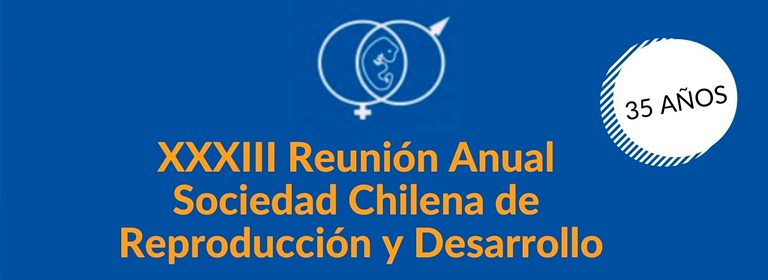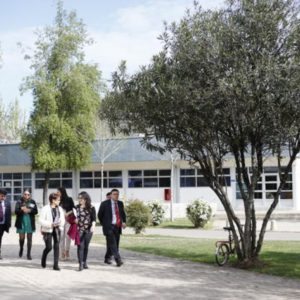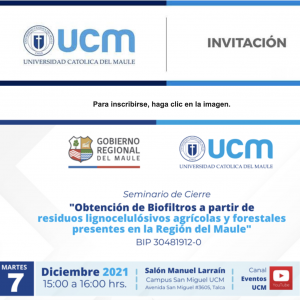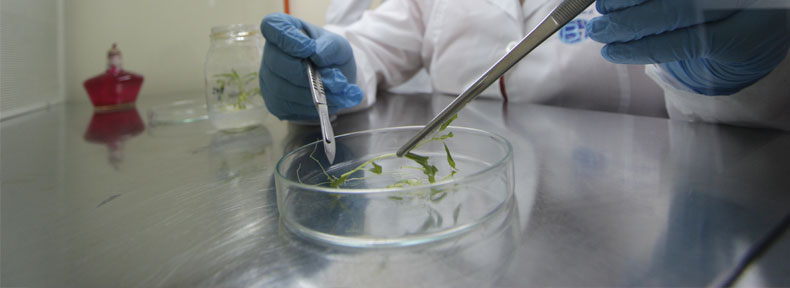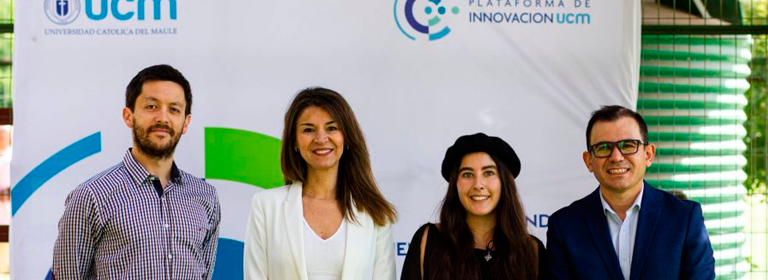The XXXIII meeting of the select group of scientists will bring together physicians and researchers from Chile and Europe.
High-level scientific discussion promises the thirty-third annual meeting of the Sociedad Chilena de Reproducción y Desarrollo (the Chilean Society for Reproduction and Development), which will take place at the Universidad Católica del Maule (UCM for its acronym in Spanish). “We expect 60 or 70 researchers and physicians to come from different parts of Chile and tell us about the latest advances related to reproduction. There will be internationally renowned researchers”, said the director of the southern area of the group and academic of the Unit of Translational Medicine of the UCM, Dr. Ingrid Carvacho.
«Our Department of Medicine, which has coordinated the activity, will play a relevant role by holding the first symposium, where doctors Emerson Maldonado and César Paredes will be present, with the topics of recurrent abortion and uterine cancer,» said about the event that will be held for three days in the institution’s Main Hall.
«The Sociedad Chilena de Reproducción y Desarrollo” is a referent in terms of research and the art’s situation in our country. It brings together different academics and researchers from the most important houses of studies. Holding the congress at UCM positions the regions as part of this group of researchers and makes visible the development of this area in the provinces, where first level research is carried out. At the same time, it allows our academics participating in the activity to establish new collaboration links with both national and international institutions. (…) We hope that it will be a meeting point, that new alliances will be generated and that research of excellence of our university will become visible», emphasized the dean of the UCM Department of Medicine,
Among the speakers are leading experts on the subject from six national universities and schools from Portugal and the United Kingdom.
“I at least am mainly looking forward to the presentation by Dr. Enrica Bianchi from the University of York, who will speak about sperm-oocyte recognition, addressing the role of cell surface proteins in fertilization and embryo transport. She is a person who does really cutting-edge research. She was the one who discovered, for example, the proteins that interact in fertilization, the protein in the egg and sperm that allows these cells to recognize each other and start fertilization. She will be a great guest,» added Carvacho.
Professor Paredes, an academic from the Unit of Clinical Sciences, highlighted the opportunity to review cancer treatment alternatives.
“Gynecological cancer mainly affects women close to the age of 50. However, there is a group of patients who may become ill during their reproductive life. If we add to this situation the fact that many women today have decided to postpone their search for pregnancy for various reasons, and then gynecological cancer of childbearing age becomes a real problem,» he said.
Part of the exhibitions will have a hybrid modality and will be broadcast through the YouTube channel «Eventos En Vivo UCM», starting on September 7.
Infertility is a couple’s issue
Dr. Emerson Maldonado, gynecologist and expert in Reproductive Medicine and Infertility, will address the role of men in recurrent abortions during the meeting.
When asked about the role of males in recurrent miscarriages, the expert commented: «The role of the male factor in recurrent miscarriages is exactly associated with poor seminal quality, especially related to sperm head defects. Specifically the nucleus, where the genetic material or DNA is contained, which can be affected by factors such as smoking, pollution, obesity, sedentary lifestyle, varicocele, diabetes mellitus or drug use. Although they can affect fertilization, it is also involved in the non-progression of a pregnancy,» he said.
“Infertility is a couple’s issue, it is not exclusive to women, therefore, in the study and management of this disease the male must be involved, not only because sperm alterations are currently more prevalent, but also because a mutual accompaniment translates into an emotional strength to face this disease”, Dr. Maldonado concluded.

